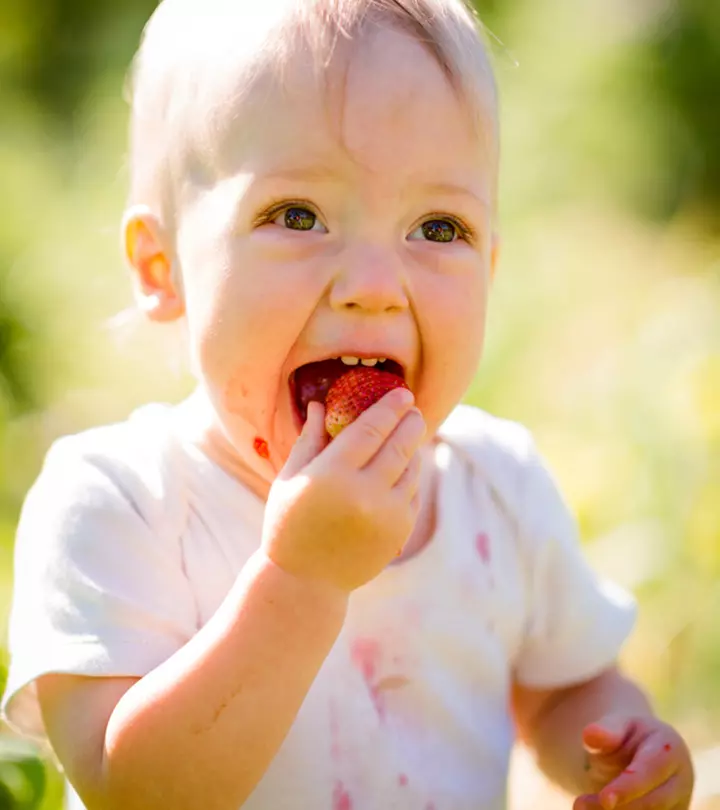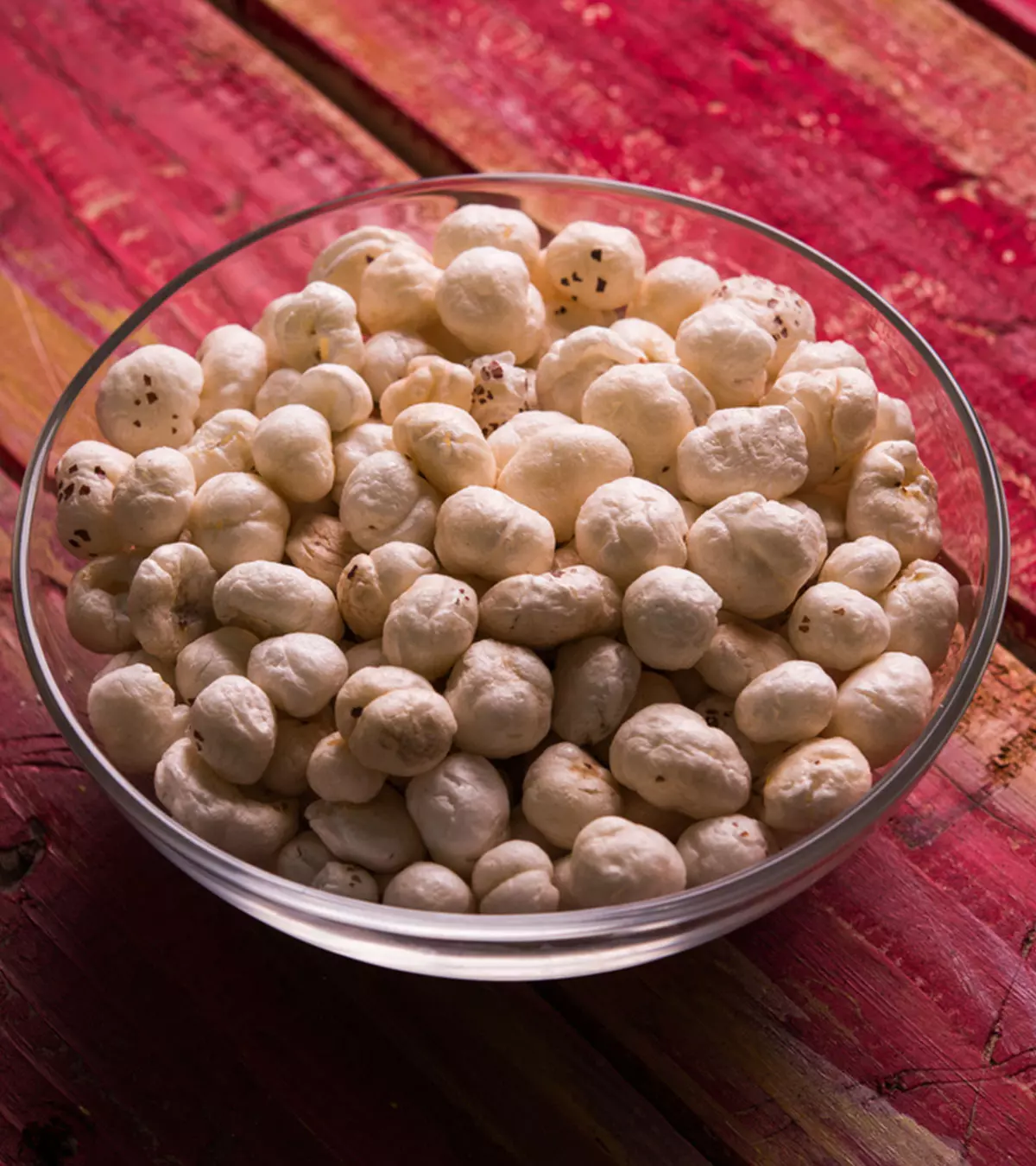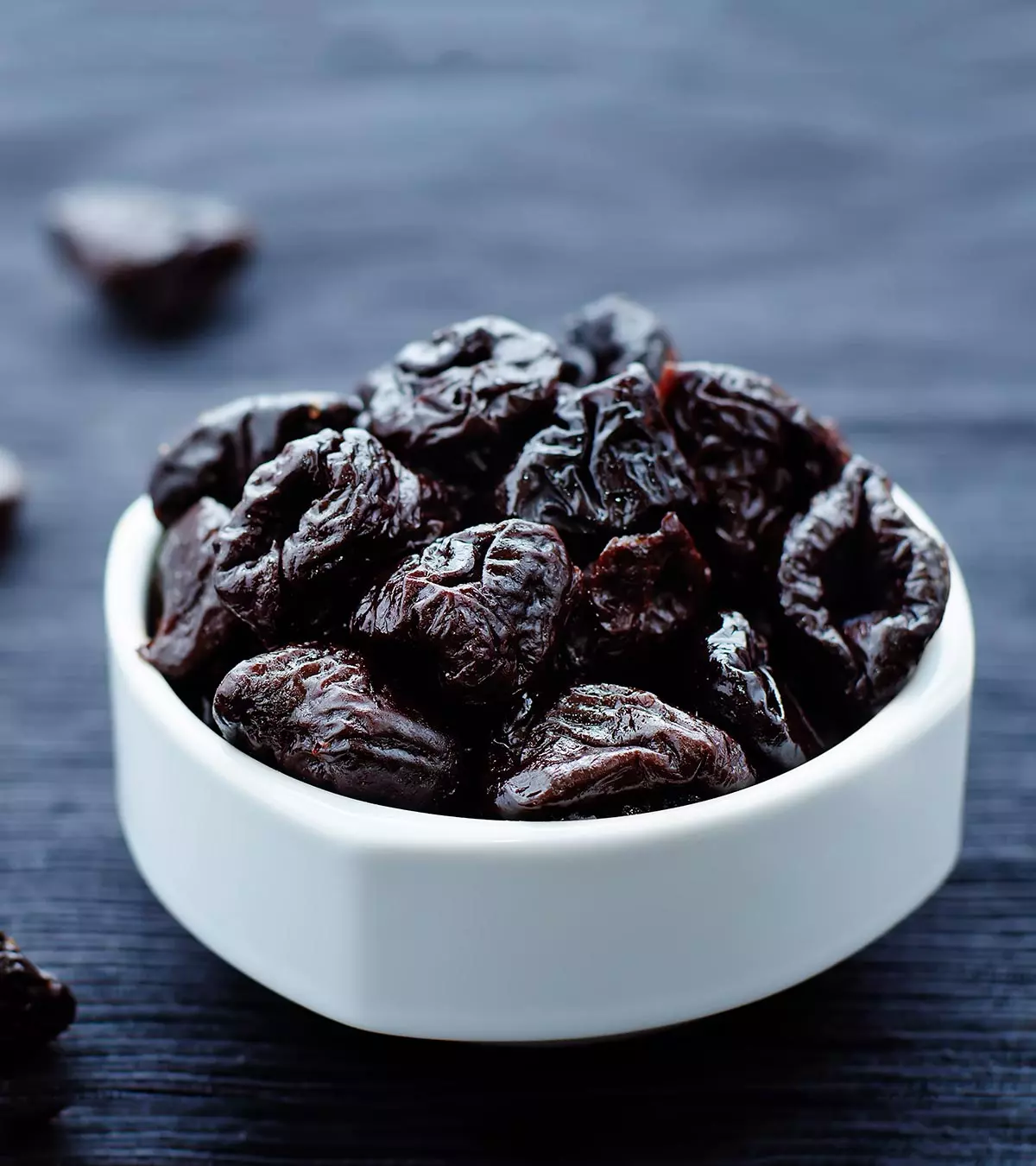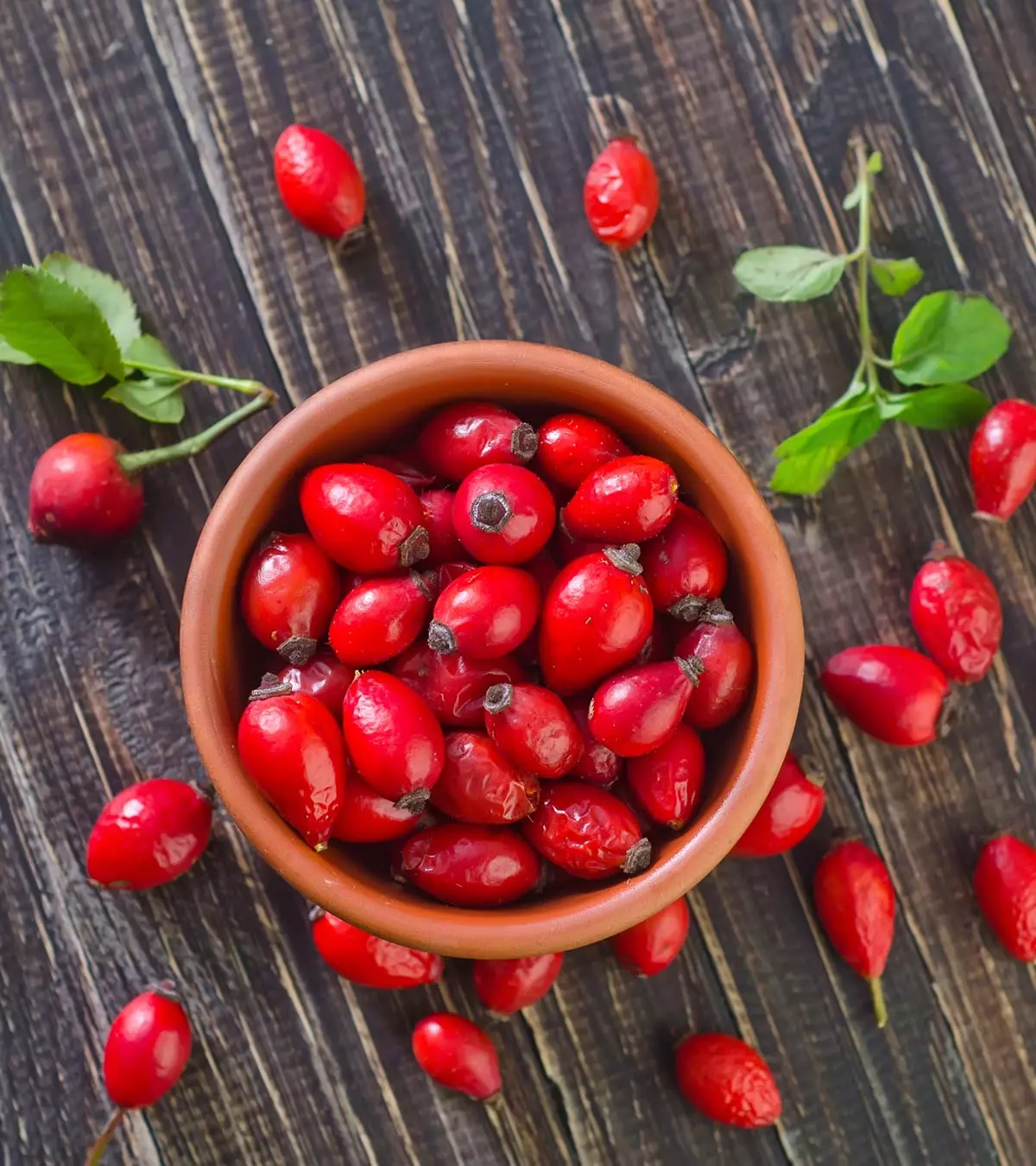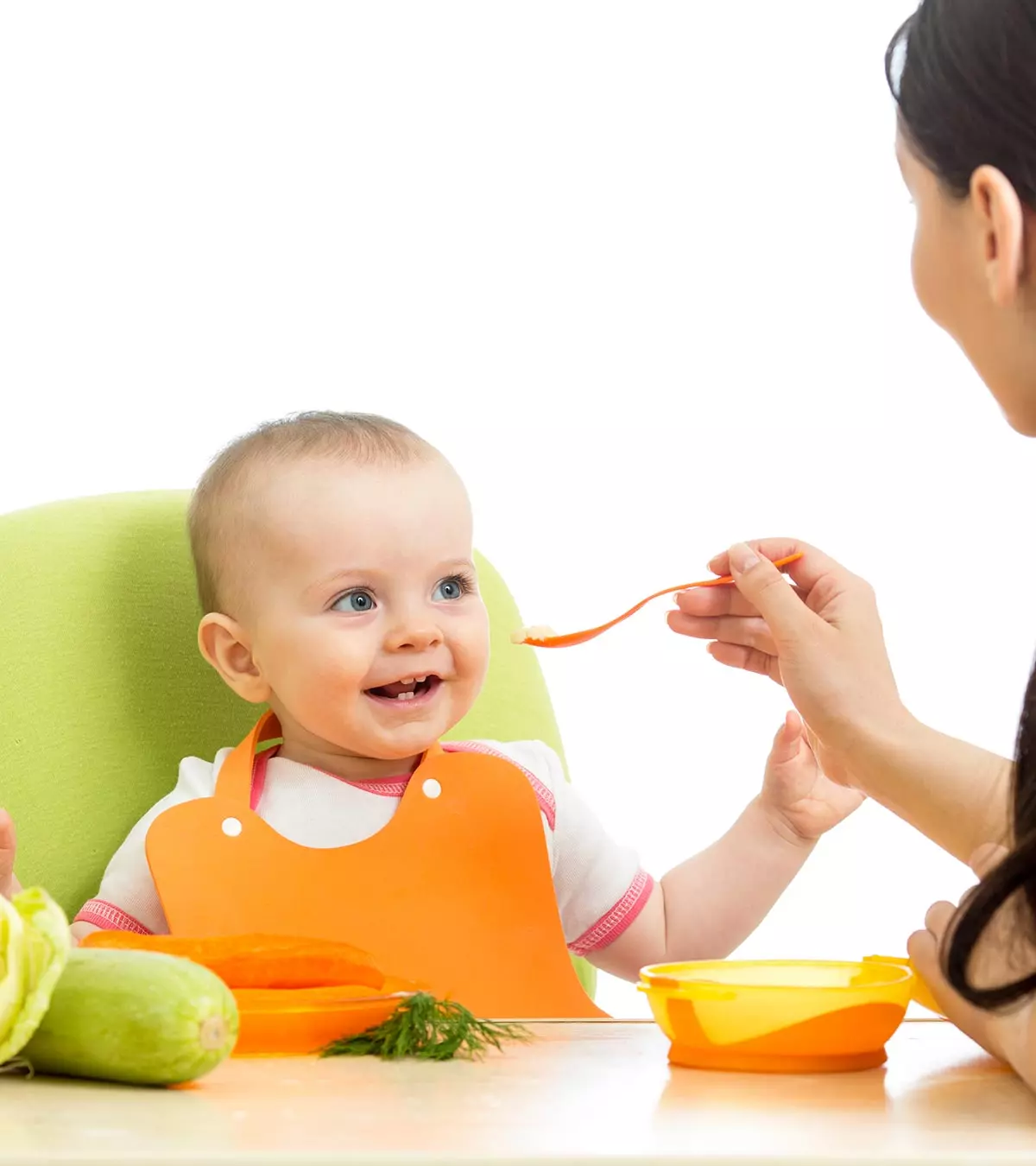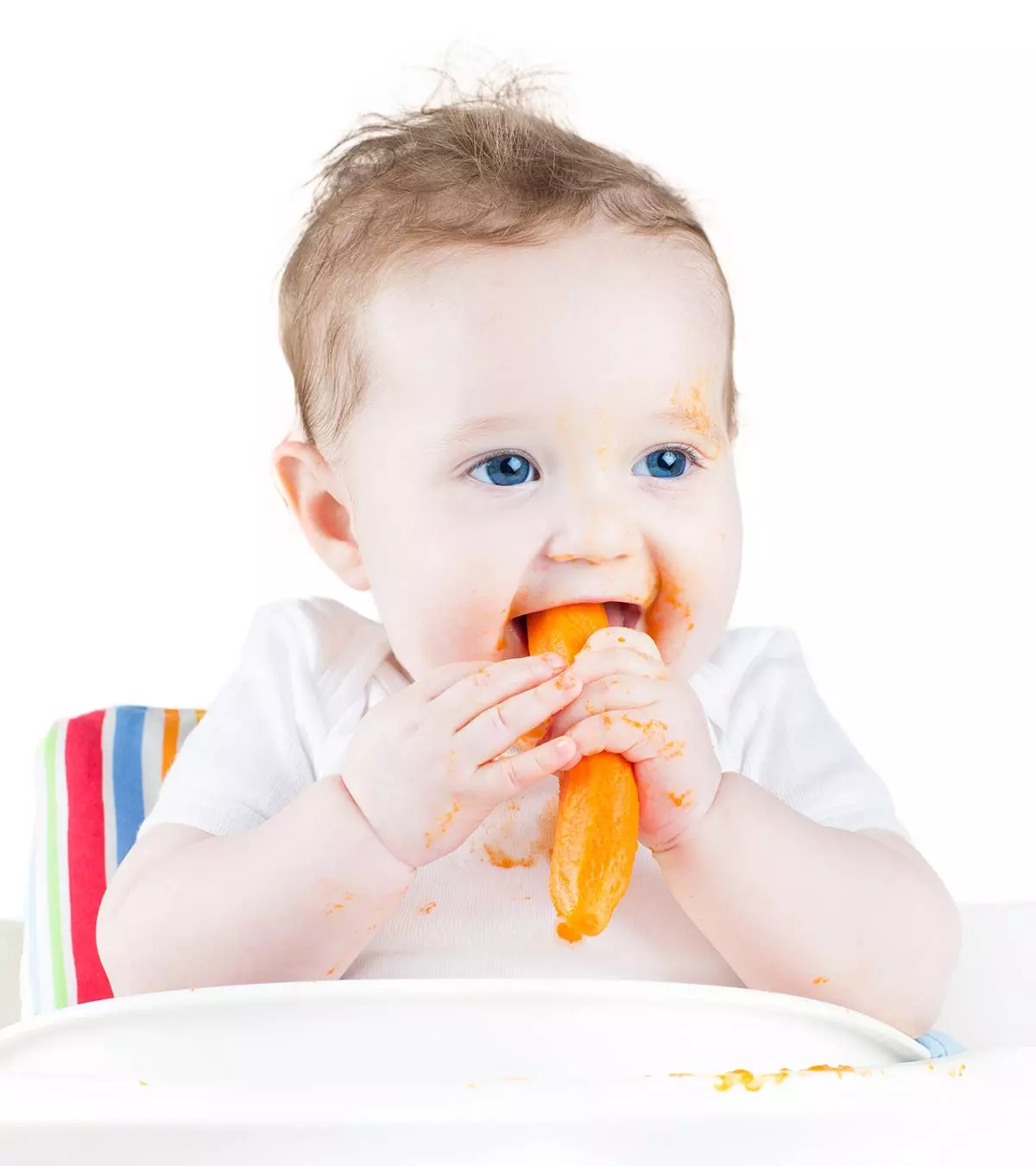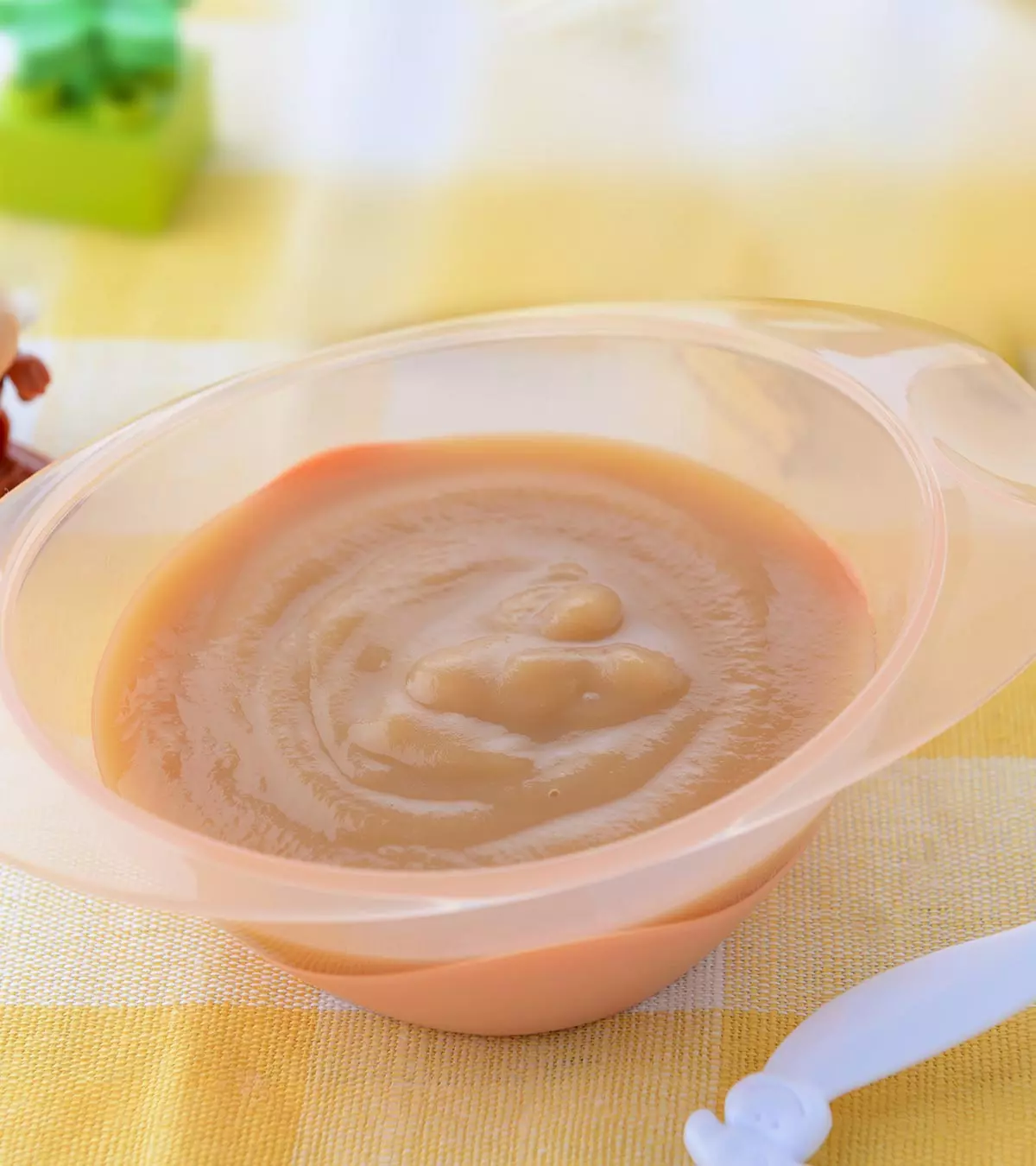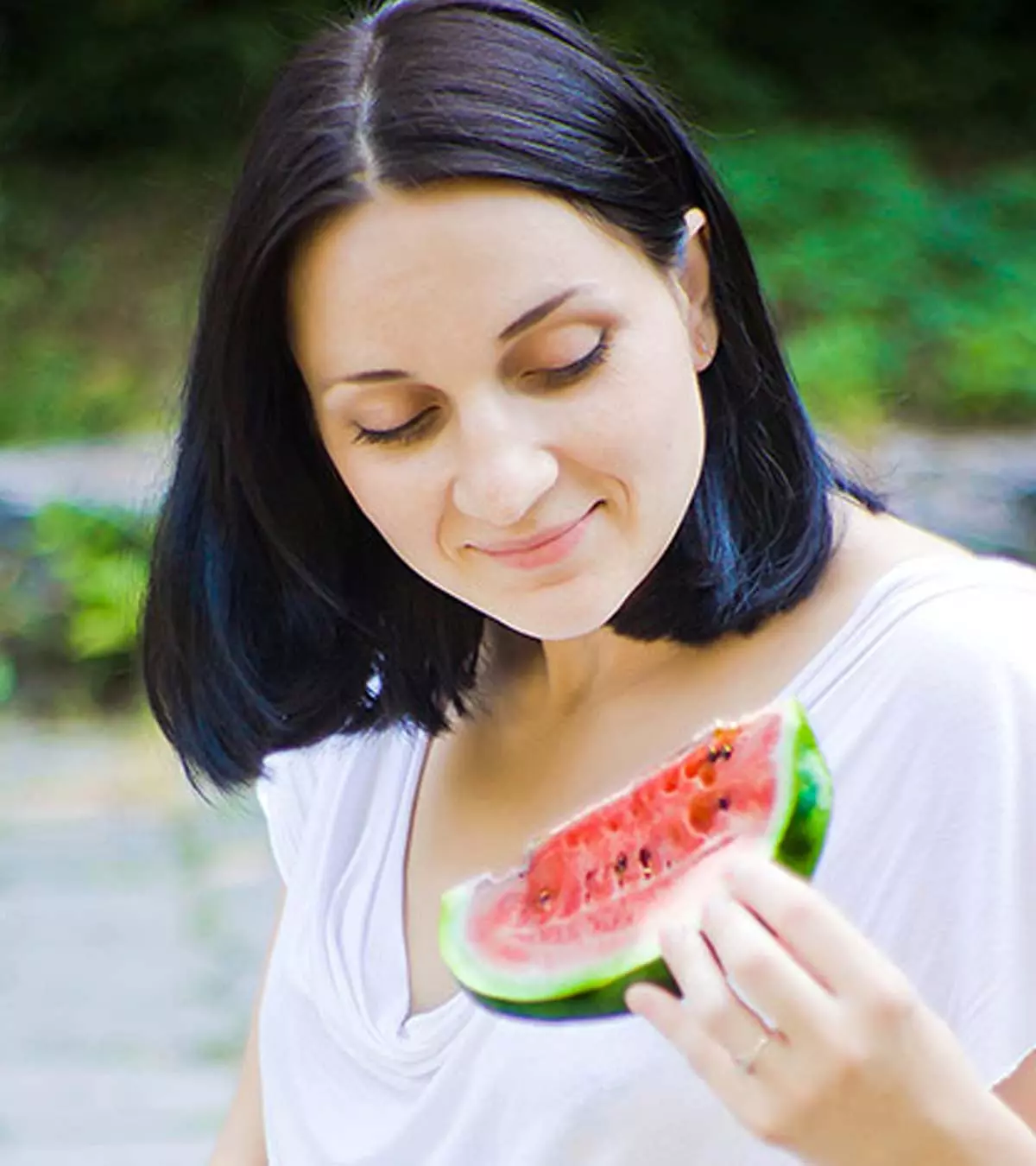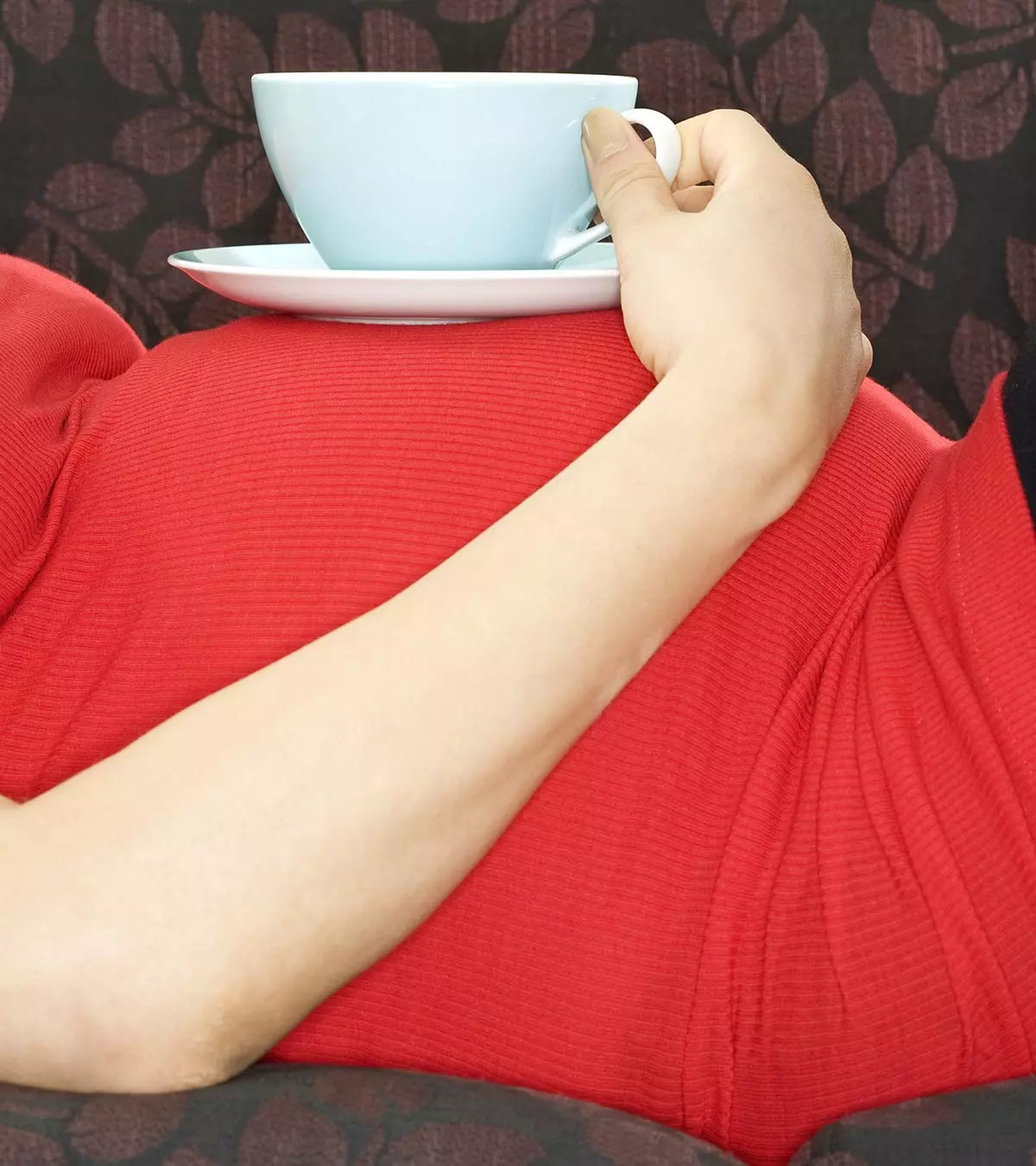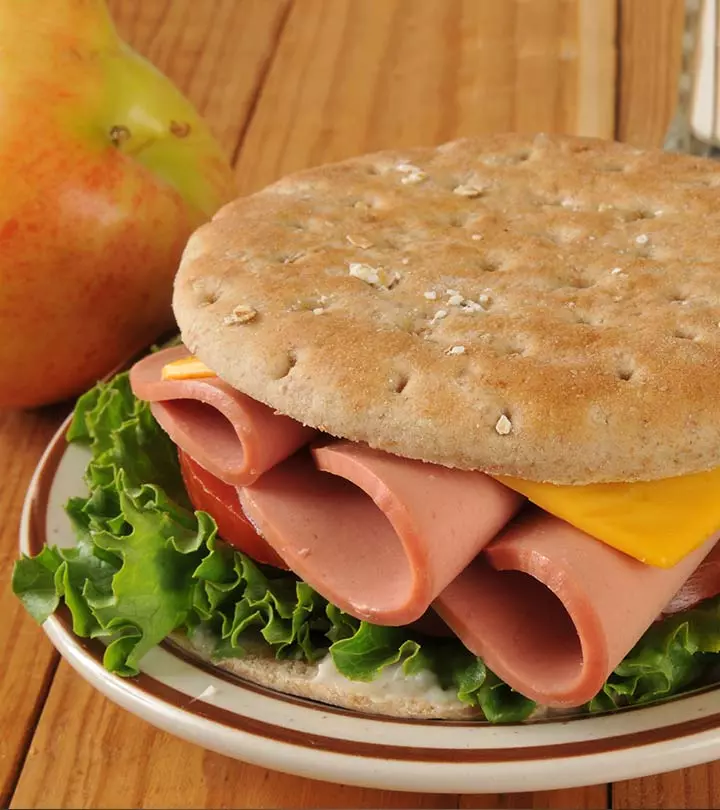
Image: ShutterStock
Bologna is a dried, smoked beef sausage, like salami. It is a blend of meat, fat, salt, and spices. Many women who love meat might be apprehensive about eating bologna while pregnant. If you are craving that bologna sandwich during pregnancy and not sure if it would be safe, scroll down this post to know more about its safety and alternatives to bologna.
Key Pointers
- Bologna contains high levels of sodium, fat, and unhealthy preservatives, making it unsafe for pregnant women.
- Eating bologna during pregnancy can lead to health issues such as high blood pressure, heart disease, and stroke.
- Pregnant women should avoid bologna due to the risk of Listeria bacteria, which can cause miscarriage, premature birth, and infections.
- Healthy alternatives to bologna include chicken, turkey, eggs, low-mercury fish, and tofu.
- To ensure the safety of food and drinks during pregnancy, including bologna, it is advisable to consult your healthcare provider.
What Is Bologna?
Bologna is a type of sausage made out of finely ground pork and contains chunks of lard in it.
It is believed to have been derived from Italy’s mortadella sausage originally found in the city of Bologna in Italy. According to the regulations of the US Government, the Bologna that is sold in the American market has to be finely ground and should not have any visible chunks of lard. Alternatively, Bologna can also be made using soy protein, chicken, beef, venison or turkey. Some of the most common seasonings that are found in Bologna sausage include coriander, black pepper, allspice, celery seeds and nutmeg. Here are some of the most common types of Bologna that are popular:
- German Bologna: It is also referred to as garlic Bologna, as it is most commonly available with a garlic seasoning.
- Kosher Or Halal Bologna: It is almost always made using only beef, but can sometimes also be made using chicken, turkey or lamb.
- Lebanon Halal: It is a Pennsylvania Dutch prepared meat. Lebanon halal is like a dried and smoky form of sausage.
- Ring Bologna: It is a smaller version of Bologna as compared to other forms of Bologna. Ring Bologna is usually used to make the pickled Bologna by soaking it in vinegar and other spices that are used for pickling.
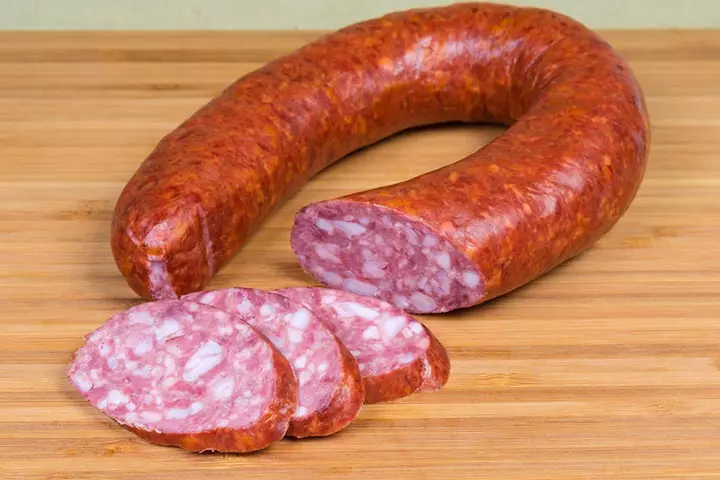
- Lauantaikkara: It is a Finnish preparation of Bologna.
- Rag Bologna: It is a long stick of Bologna that is high in fat. In traditional markets, it is sold after being wrapped in a cloth rag, hence the name rag Bologna.
- South African Polony: It is made using highly processed meat, and it also boasts of a high concentration of pink slime.
 Quick fact
Quick factIs It Safe To Eat Bologna While Pregnant?
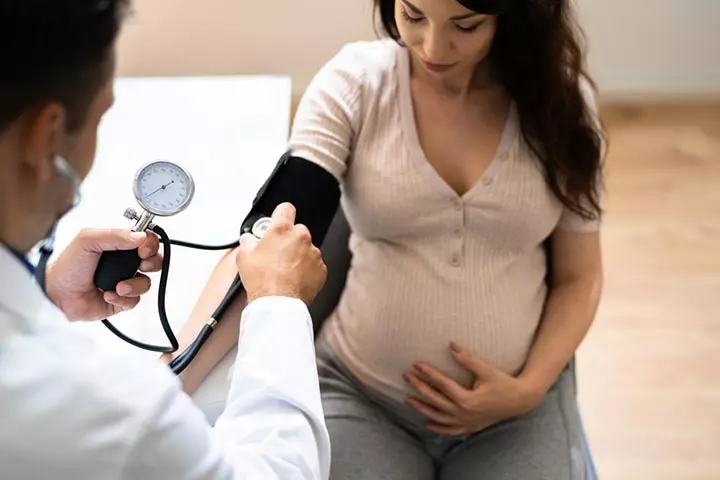
It is not safe to eat Bologna and other such deli meats during pregnancy, especially as it has high sodium and fat content. Moreover, it also contains different kinds of preservatives, including nitrites, which are quite unhealthy for the maternity diet.
Processed meats are usually the types of meats preserved or cooked in a fashion that involves smoking, salting, curing, or adding other forms of chemical preservatives. All of these processes increase your risk of colon cancer. According to some health experts, eating foods that contain many preservatives can cause cancer.
The sodium content found in one small lunch portion of Bologna, which is one slice of Bologna, equals about 301 to 480 mg. It has a high sodium content and may lead to various health and wellness risks such as high blood pressure, heart disease, and even a stroke, requiring immediate hospital admission.
Pregnant women should also avoid Bologna since it may contain the bacteria Listeria. This bacteria is commonly found in food products that are not properly refrigerated or handled. According to the US Food and Drug Administration, pregnant women are ten times more susceptible to Listeria infection compared to women who are not pregnant (1). In pregnant women, the bacterial infection may lead to miscarriage, premature birth, stillbirth, or life-threatening infections in newborns.
 Quick tip
Quick tipWhat Can You Have Instead?
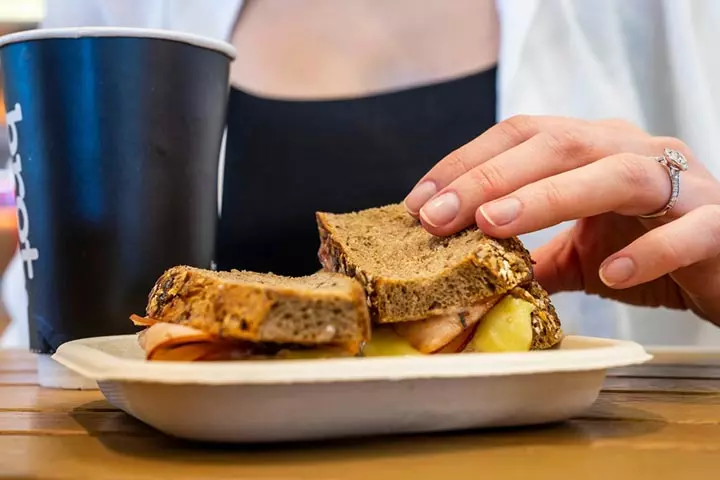
If you are craving some Bologna, opt for healthier food and nutrition choices such as freshly roasted slices of chicken, turkey breast, or lean roast beef in your sandwich. These alternatives can satisfy your cravings and provide essential nutrients for you and your baby.
 Quick tip
Quick tipConsult your doctor for optimum prenatal care regarding anything you eat or drink during pregnancy. Ask your obstetric/gynecology specialist about the safety of eating Bologna while pregnant.
Frequently Asked Questions
1. What does craving bologna while pregnant mean?
Hormonal changes during pregnancy, a heightened taste of sense and smell, and nutritional deficiencies are responsible for all pregnancy cravings, including bologna cravings (2).
2. Is fried bologna safe during pregnancy?
According to the recommendations of the experts at the CDC, fried bologna cooked to an internal temperature of 165°F can be safe for pregnant women (3).
3. Is it better to opt for low-fat or regular bologna during pregnancy?
Low-fat bologna contains less fat than regular bologna. However, both bologna types are high in sodium and nitrate, which may adversely affect the mothers and babies. Therefore, pregnant women are generally recommended to avoid bologna.
4. Can the consumption of bologna during pregnancy lead to weight gain or other pregnancy-related health issues?
There is no research to establish a direct link between bologna consumption and weight gain in pregnant women. However, processed meats like bologna contain high amounts of fat, sugar, and salt, which may lead to weight gain if consumed excessively (4).
5. What should I do if I accidentally eat bologna while pregnant?
If you accidentally consume bologna, monitor any unusual symptoms and consult your healthcare provider for guidance. It is essential to stay informed about food safety during pregnancy to mitigate potential risks.
6. What should I do to minimize the risk of listeria infection during pregnancy?
To minimize the risk of listeria infection during pregnancy, ensure all meats are cooked to a safe temperature. Also, avoid unpasteurized dairy products and maintain strict hygiene when handling food.
It is not recommended to consume Bologna while you are pregnant due to its high sodium and fat content. Bologna is made from ground beef, pork, chicken, or turkey. You may find Bologna with various seasonings and preparation methods such as smoky or dried. If not properly stored or handled, there is also an increased risk of listeriosis. Bacterial contamination can be associated with negative pregnancy outcomes such as miscarriage and premature birth. You may instead opt for healthy choices such as freshly toasted slices of chicken, turkey, or beef in your sandwich.
Infographic: Possible Side Effects Of Including Bologna In Pregnancy Diet
Cravings for deli meats such as bologna during pregnancy are not uncommon. However, several factors make them unsafe for consumption for expectant mothers. Scroll through the infographic below to learn about the reasons that make bologna potentially unsafe for pregnant women.

Illustration: Momjunction Design Team
Illustration: Is It Safe To Eat Bologna While Pregnant?

Image: Stable Diffusion/MomJunction Design Team
Craving for a bologna sandwich, but wondering if it is safe for your baby? Watch this video to find out the answer!
References
- Listeria (Food Safety for Moms-to-Be).
https://www.fda.gov/food/health-educators/listeria-food-safety-moms-be#:~:text=Facts,listeriosis%20than%20other%20healthy%20adults. - Why Pregnancy Can Make You Have Weird Cravings.
https://intermountainhealthcare.org/blogs/why-pregnancy-can-make-you-have-weird-cravings - Sausages and Food Safety.
https://www.fsis.usda.gov/food-safety/safe-food-handling-and-preparation/meat-catfish/sausages-and-food-safety - Eating highly processed foods linked to weight gain
https://www.nih.gov/news-events/nih-research-matters/eating-highly-processed-foods-linked-weight-gain - Guide to Bologna.
https://www.hot-dog.org/sausage-basics/guide-to-bologna - What You Need to Know About Preventing Listeria Infections.
https://www.fda.gov/food/buy-store-serve-safe-food/what-you-need-know-about-preventing-listeria-infections
Community Experiences
Join the conversation and become a part of our nurturing community! Share your stories, experiences, and insights to connect with fellow parents.
Read full bio of Reda Elmardi
Read full bio of Ria Saha
Read full bio of Swati Patwal
Read full bio of Lorraine Teron











